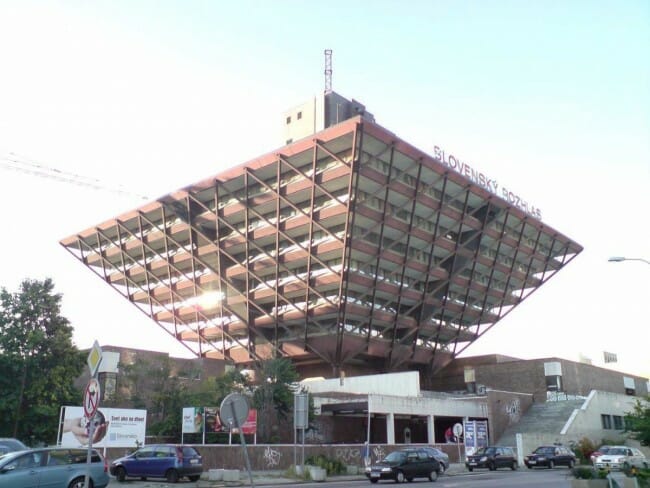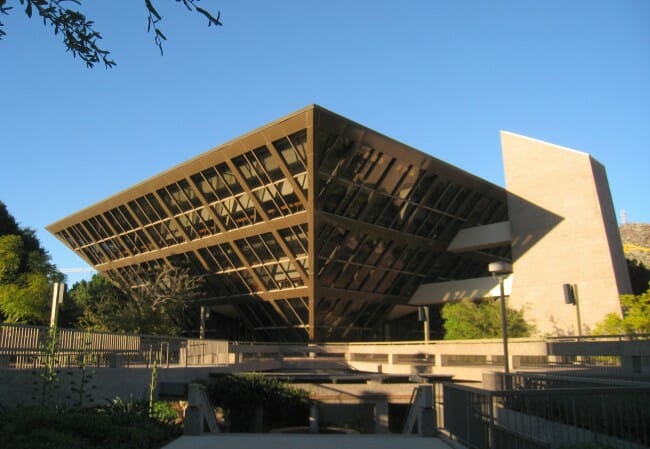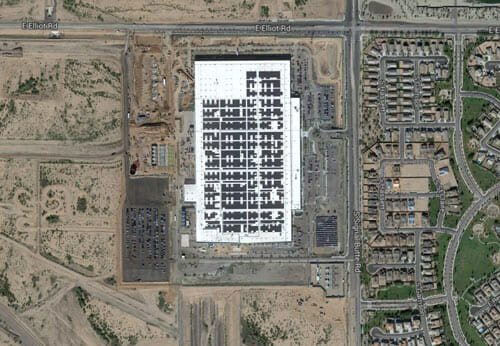Our public utility APS wants to enter the rooftop solar business. As a ratepayer and taxpayer, I have deep concerns about this because of the numerous ways this venture could end up with various hidden subsidies.
However, I find it simply hilarious that current rooftop solar providers, including #1 subsidy whore and crony capitalist SolarCity. Here is what trade group Arizona Solar Energy Industry Association wrote in an email to me today. I have highlighted some of the bits that got my blood boiling this morning:
In an unprecedented announcement that took the solar industry by surprise, Arizona’s largest utility, APS, announced that it intends to begin competing directly with Arizona solar installers. APS announced Monday that it is seeking permission to spend between $57 and $70 million -not including its profits- of ratepayer money to install solar on the roofs of homes in its service territory and to compete directly with solar installers of all sizes.
“The idea of our members who compete in the free market today having to all of a sudden compete with a regulated monopoly is frightening. How would you like it if the government just stepped in and started competing with your business?†said Corey Garrison, CEO of Arizona based Southface Solar and treasurer of Arizona Solar Energy Industries Association (AriSEIA). "APS has proposed subsidizing certain customers that allow it to put solar on their rooftops while the free market gets no more utility subsidy and actually gets charged for going solar."
It has been well publicized that APS spent much of the last year in a battle with the very industry it now seeks to dominate. Throughout 2013 APS urged the Arizona Corporation Commission to install a huge monthly tax on those who would put solar on their roof. It has also been reported that APS urged the Department of Revenue to institute a new property tax on rooftop solar panels that are leased to customers.
“After spending a year misleading the public with well-publicized lies and misdirection, APS seems to think this is a good time for it to be rewarded with an expansion of its monopoly franchise†said Corey Garrison
Unlike rooftop solar companies that must compete with each other on a level playing field, APS earns a guaranteed rate of return off of its assets including these proposed rooftop solar installations. If approved, APS would be permitted to advertise its solar product in its customer bills and to use its customer lists to market and sell, all with employees paid for by ratepayers. Unlike traditional, free market rooftop solar which is paid for only by the customer that installs the system, APS will be asking all its ratepayers to pay the cost of, and guarantee its profits on, each of the systems it installs under this program.
“This is a massive expansion of the monopoly into an area that is well served by the free market†continued Garrison, “what’s next; will APS ask to sell electric cars or ovens or some other set of goods or services?â€
This is hilarious. The rooftop installers in AZ lost some of the subsidy from power companies (e.g. APS) over the past years but still get a myriad of subsidies for themselves and their customers. We will use one of the larger installers, SolarCity, as an example. This is from the SolarCity web site:
Federal, state and local governments offer incredible solar tax credits and rebates to encourage homeowners to switch to renewable energy to lower their energy usage and switch to solar power. The amount of the rebate subsidy varies by program, but some are generous enough to cover up to 30% of your solar power system cost.
The federal government allows you to deduct 30% of your solar power system costs off your federal taxes through an investment tax credit (ITC). If you do not expect to owe taxes this year, you can roll over your credit to the following year.
.... Some locations have additional incentives to make solar even more affordable. SolarCity will get the most for your project
SolarCity is committed to helping you benefit from every federal, state and utility rebate and tax credit available for your energy upgrade projects.
Navigating through government rebate programs on your own can be intimidating. SolarCity will identify all of the qualifying tax credit and rebate programs for your system and file the required paperwork for you. We will even credit you for the state rebate upfront so that you do not have to wait for the government to send you a check later.
This language is a bit odd, since in most cases SolarCity captures these credits for themselves and then passes on the savings (presumably, but maybe not) to customers via lower power costs, exactly the same model APS is proposing.
Customers, however, must sign a contract agreeing to cede "any and all tax credits, incentives, renewable energy credits, green tags, carbon offset credits, utility rebates or any other non-power attributes of the system" to SolarCity. The tax credits are passed on to its investors, which include the venture-capital firms Draper Fisher Jurvetson, DBL Investors and Al Gore's Generation Investment Management LLP.
The description by solar installers that they somehow represent the "free market" is simply hilarious, given the dependence of their industry on taxpayer subsidies (either of the installers or the customers). SolarCity admits that their business would actually never be able to operate in a free market:
SolarCity officials, including Musk’s cousins and fellow Obama donors Lyndon and Peter Rive, acknowledged the company’s dependence on government support in its 2012 IPO filing. “Our business currently depends on the availability of rebates, tax credits and other financial incentives,†they wrote. “The expiration, elimination or reduction of these rebates, credits and incentives would adversely impact our business.â€
A more recent SolarCity filing with the Securities and Exchange Commission notes: “[The company’s] ability to provide solar energy systems to customers on an economically viable basis depends on our ability to finance these systems with fund investors who require particular tax and other benefits.â€
Rooftop installers also have their business buoyed by government mandates that power companies pay residential solar producers 2-3x the going wholesale market rate for any electricity they put into the grid
SolarCity also benefits from "net metering" policies that 43 states, including California, have adopted. Utilities pay solar-panel customers the retail power rate for the solar power they generate but don't use and then export to the grid. Retail rates can be two to three times as high as the wholesale price of electricity because transmission and delivery costs, along with taxes and other surcharges that fund state renewable programs, are baked in.
So in California, solar ratepayers on average are credited about 16 cents per kilowatt hour on their electric bills for the excess energy they generate—even though utilities could buy that power at less than half the cost from other types of power generators.
This was the battle referred to obliquely in the press release above. The electric utility APS wanted to stop overpaying for power from these rooftop solar installations. Rooftop installers fought back. In the end, a fixed charge was placed on homeowners to account for part of this over-payment, an odd solution in my mind that seems to have ticked off both sides.
So the supposedly "free market" rooftop companies are competing successfully with regulated utilities because they got Federal, state, and local subsidies; are exempted from things like paying property tax on leased equipment that every other business has to pay; and get a mandate from the state that utilities have to pay double the market price for their power. Is it any wonder that a regulated utility, which is no stranger to cronyism and feeding at the subsidy trough, might want to get a piece of that action?
ASEIA, you are welcome to duke it out for first spot at the trough with APS, but don't corrupt the word "free market" by trying to apply the term to yourselves.







